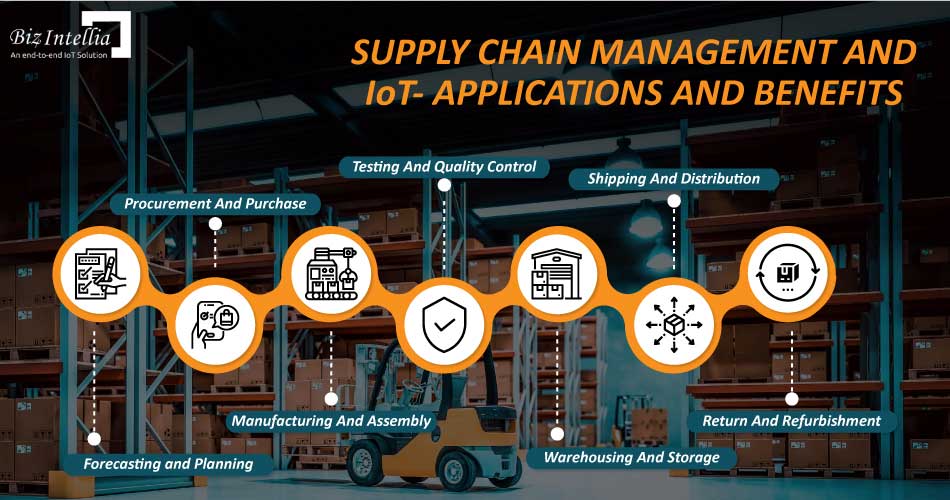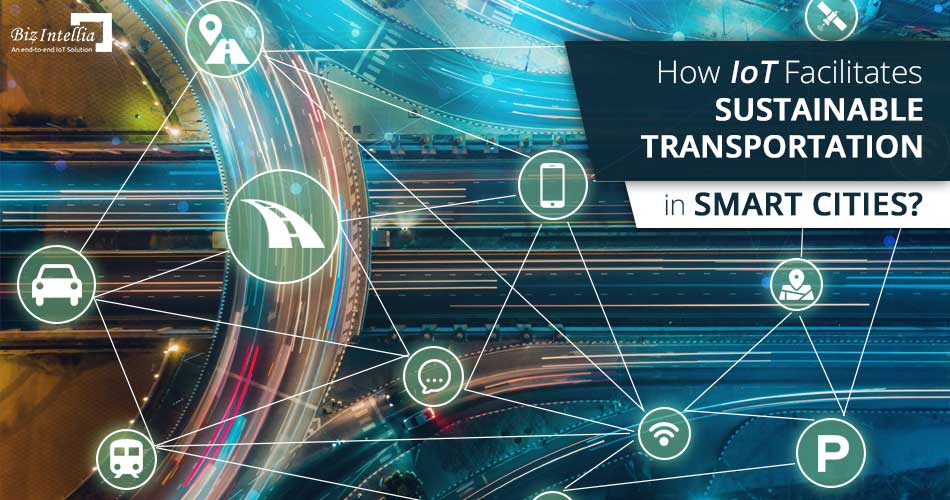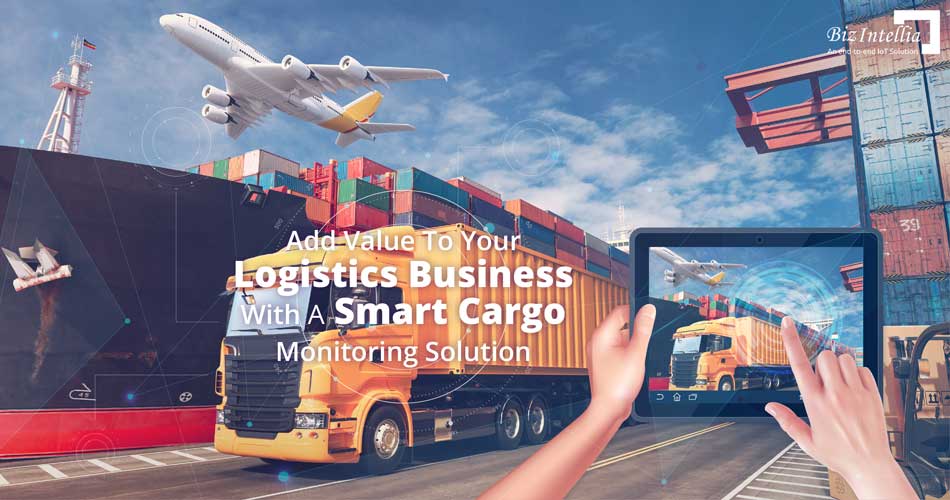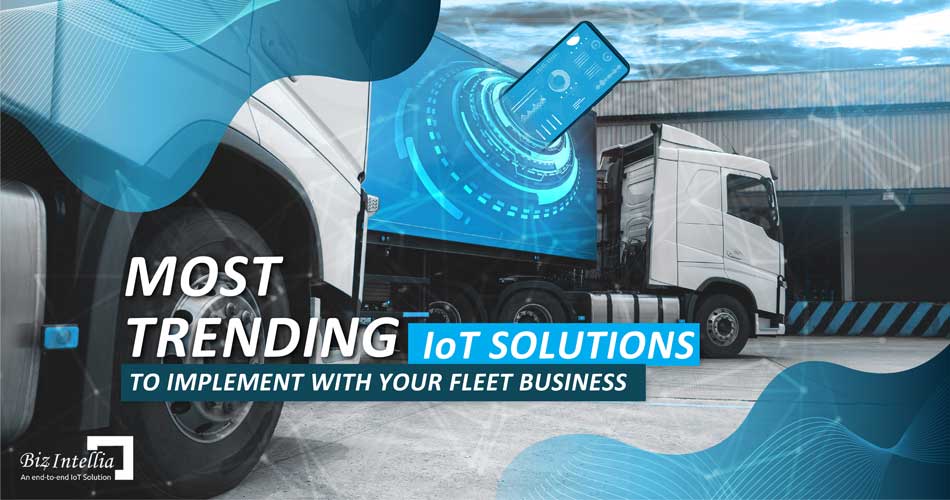IoT is revolutionizing multiple industries including transportation, logistics, mining, water, healthcare, and oil & gas. The Internet of Things holds a great potential to serve these industries, especially in their supply chain processes. There are multiple IoT applications like fleet management, and machine monitoring systems that help the logistics authorities to improve operability inside and outside the plant and provide with efficient decision-making.
Each area in the supply chain process can be covered under IoT and its innovative applications for enhanced efficiency. Also, a supply chain process includes several levels through which manufacturing of a product is performed, from its raw material to its delivery.
Supply Chain Levels in an Industry
Categorizing a supply chain into 3 levels, it consists of
• Planning: It involves firm decision-making of the owners who plan the whole structure of the plant processes before creating a product.
• Management: It involves the implementation of the whole idea or plan, to manufacture products. This level of a supply chain follows a practical approach of processing the raw materials into real products and managing the entire functioning of the plant.
• Operations: It involves the regular analysis of the manufactured products, monitoring logistics, and considering the issues of the suppliers.
Manufacturing Process
Plant Management
Logistics
Delivery to the Customer
In this era of industrial revolution 4.0, a supply chain consists of every aspect of creating a product and delivering it to its end-user. The Internet of Things is a pioneering technology that comprises innovative solutions to help maintain effective workability of a factory.
The manufacturing method involves a whole bunch of big machines that process the raw material. These types of machinery require proper maintenance to carry out quick and efficient operations. With the help of IoT and its sensor-based solutions, it is now easier to maintain the condition of these machines. An IoT based machine monitoring solution enables the data collection from these machines such as temperature, pressure, vibration, and noise and forwards this data on a viewing platform like a smartphone.
Plant management includes every aspect involved in product manufacturing. It is inclusive of various plant activities, which are performed in different departments like quality control, inventory management, employee safety, transportation within the plant, energy consumption, water consumption, etc. It becomes quite challenging for the plant workers to follow the processing through traditional intra-communication channels (through telephones). Thus, IoT-based innovative solutions like smart water meter solution, and energy monitoring solution provide the entire staff with effective and smart techniques to improve the plant’s performance.
Logistics is the most important level in the supply chain. It involves both the import and export of the goods. The owners in a transportation and logistics industry require the most appropriate methods to help keep track of the produced units. Thus, a fleet monitoring solution, GPS fleet tracking solution, smart contract solution, and oil/fuel theft solution, are some of the IoT-based systems that can be implemented for a successful logistics processing.
IoT and its Benefits in a Supply Chain
Inventory Management
An inventory system is a crucial part of a supply chain process, which involves product supervision and manual monitoring. It becomes quite expensive and tedious for the authorities to manage and allow excess manual labor to handle the production levels.
A sensor-based IoT solution automates the laborious work and keeps an accurate track of the product count and its position in the inventory, exclaiming the wonders of technology. In a supply chain there are thousands of processes going on simultaneously, and keeping a track on every process is difficult. Therefore, implementing different IoT enabled solutions with different departments of a supply chain would ease the processing for the owners.
Real-time Visibility of Supply Chain Processes
A supply chain process comprises of multiple processes running simultaneously. Traditional ways of handling a supply chain would consume a lot of time to process the goods from the factory to its consumer and there used to be lengthy records of the same. Gradually, with the advent of technology everything been reduced to smarter levels. The Internet of Things complies innovative methods to keep a live track on each and every process and keeps those processes visible in real-time through a platform hub. The proper visibility of a supply chain process and business creates trust and brand reliability. Also, it helps to build a unique brand value of the business in the market.
Data-driven Outcome
IoT works on sensor-based devices and applies smart methods that provide data driven outcomes. It is well-known that IoT uses senor devices that extract data from the assets, and that data is furthered on a platform hub which helps in predicting the results. A supply chain management process mainly involves the product manufacturing and on-time supply of those products. Involving IoT with the supply chain levels offer remote monitoring that possess data-driven outcome. Tracking a delivery person’s driving habits, delivery routes, and storing this data for future analysis is one of the best ways in which IoT works.
Predictive Timeliness of the Service Deliveries
On-time service delivery is the most crucial part of a supply chain business. It comprises of multi-layer processes that involve delivering of the finished products from the factories to the end-user. However, several factors might cause the delay in the delivery or supply downtime. Thus, an IoT-enabled solution uses predictive maintenance that ensures there are no such downtimes that can cause delivery delays. An interconnected sensor-based system extracts valuable asset data that helps the authorities to predict the exact timings of the product delivery. Also, it provides prior information about any machine irregularities or errors that might cause service delays. An IoT solution gives a predictive timeliness of the product delivery and thus, helps a lot in managing the supply chain processes effectively.
IoT is emerging as a great technology, serving many industries with its strong potential and innovation. Supply chain management processes deal with most of the industries and are transforming their functioning methods with the help of the Internet of Things. There are immense benefits of using IoT with the supply chain domain. Many businesses like Amazon and decathlon are adopting smart methods to carry out their factory operations and gaining better results. Using the latest IoT methods, authorities find it easier to manage and keep the raw material in favorable conditions.




